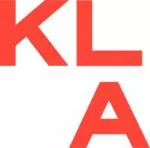RULING BASED ON ILLEGALLY-OBTAINED EVIDENCE UPHELD BY CSRF
In a ruling decided by a majority of votes, the 3rd Court of the Superior Chamber of Tax Appeals used principles of Criminal Law to validate a tax assessment based on evidence obtained illegally.
The case discussed an II (Import Tax) and IPI (Tax on Industrialized Products) tax assessment notice against a company involved in electronic import fraud triggered by Operation Deluge, jointly conducted by the Federal Police and the IRS. Through Habeas Corpus No. 142,045, the STJ considered telephone interceptions obtained after the 60th day of investigation as unlawfully obtained evidence, which resulted in the contamination of part of the evidence supporting the assessment.
However, and despite having been declared unlawful by the STJ, the prevailing understanding in the CSRF was that tax authorities could have obtained the evidence derived from the illicit interceptions through other means, following the typical and usual procedures of Federal Revenue Inspection. Thus, based on paragraphs 1 and 2 of art. 157 of the Criminal Procedure Code, the nullity of the unlawfully-obtained evidence was rejected.
The decision is unique and sets a dangerous precedent for the validation of tax assessments made in violation of legal norms. The case will be returned to the lower court so that it may review the case considering the evidence now admitted by the CSRF.
CARF: NO IOF ON FUND ADVANCEMENTS FOR FUTURE CAPITAL INCREASES
The 2nd Court of the 3rd Chamber of the 3rd CARF Judgment Section issued a ruling that dismissed an IOF tax assessment over amounts recorded as advance payments for future capital increases (AFAC).
The Tax Inspection disqualified the payments claiming that no capital increase was made within 120 days after the end of the year in which the funds were transferred, as required by Normative Ruling No. 17/84. Accordingly, it understood that a loan transaction had taken place, and issued an assessment notice to collect the IOF-credit that would be due in such transaction, pursuant to art. 13 of Law No. 9.779/99.
The CARF unanimously understood that the grounds used by Tax Authorities (Normative Ruling CST No. 17/84) refer to the Corporate Income Tax and cannot be used as a basis to disregard AFAC contracts for IOF purposes.
CARF: TURNOVER TAXES CAN’T BE COLLECTED OVER COST-SHARING AGREEMENTS THAT HAVE NO PROFIT MARGIN
The 2nd Court of the 4th Chamber of CARF's 1st Judgment Section recently issued a ruling in a case involving a COFINS tax assessment over amounts received as reimbursement in the context of a cost-sharing agreement. Contracts of this nature are used to distribute expenses incurred by an entity within an economic group - usually the “parent company” - in favor of a related company.
In the case under analysis, Tax Authorities considered that the amounts received by the “parent company” as reimbursement of expenses regarding legal, auditing, accounting, marketing, IT and human resources services provided to other companies of the group should be taxed with COFINS. The taxpayer used documents to prove that there is no profit in the relationship with the other companies of the group, since the operation constitutes a mere reimbursement of expenses, and is thus not subject to COFINS.
In the understandings of most Counsellors, there only is taxable revenue when the operation has a profit margin. Accordingly, the decision established a tangible criterion to rule out the collection of COFINS in the context of cost-sharing agreements.
The content of this article is intended to provide a general guide to the subject matter. Specialist advice should be sought about your specific circumstances.

